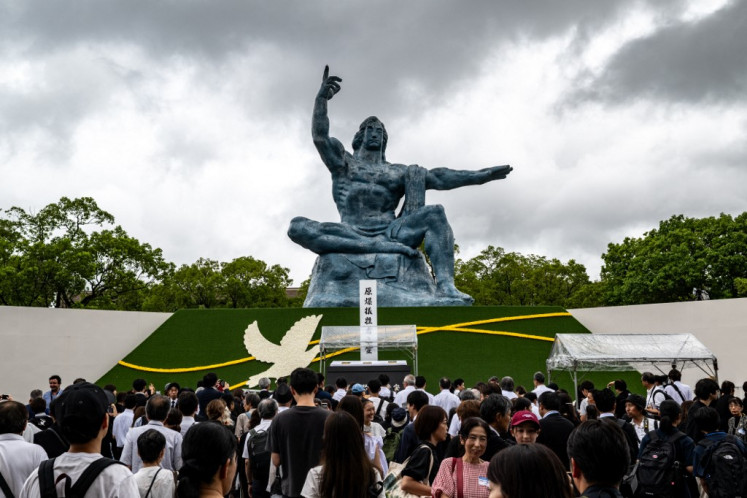Popular Reads
Top Results
Can't find what you're looking for?
View all search resultsPopular Reads
Top Results
Can't find what you're looking for?
View all search resultsThe hidden meaning behind judicial review of TNI retirement age
Thus, raising the retirement age limit for TNI soldiers is an effort to fight for fundamental rights in the form of equality before the law and, of course, legal certainty.
Change text size
Gift Premium Articles
to Anyone
O
n Sept. 7, several active and retired Indonesian Military (TNI) soldiers filed a judicial review motion against Article 53 of Law No.34/2004 on the TNI. The legal fight aims to increase the mandatory retirement age for all TNI soldiers to 60 years old, or at least 60 for TNI middle- and high-ranking officers and 58 for those in the lower rungs of the TNI hierarchy.
The judicial review is the second constitutionality test of the TNI retirement age within the past few years after the first motion filed in September 2021 was overturned by the Constitutional Court in a split decision. The question is therefore why raising the retirement age of TNI soldiers matters and if it is urgent.
If we dig more deeply, there are three key messages that we can learn about the political and legal aspects related to the request to increase the retirement age.
First, the Constitutional Court decision dated March 8, 2022, provides a strong message that the existence of different regulations regarding the retirement age between TNI soldiers and members of the National Police have left a fundamental problem, namely inequality. The problem of inequality will give rise to different treatment and, of course, injustice.
As instruments of the state, the TNI and police stand equal. The division of labor is what differentiates them. According to the Constitution, namely, the Fourth Amendment, the TNI is responsible for national defense, while the police is for security, order and law enforcement.
However, this equality is not reflected in the retirement age limits of the two institutions. Article 30 paragraph (2) of Law No. 2/2002 on the National Police states that the retirement age limit for each member of the force is 58 years, but officers with unique and urgently needed skills can have their service extended until the age of 60.
In fact, in a constitutional democratic order, equality is a fundamental right that the Constitution upholds. More profoundly, basic rights are a product of the bourgeois revolution in the 18th century and are the program of the modern constitutional state that emerged because of that revolution. In addition, equality is a fundamental right, such as equality before the law.



















